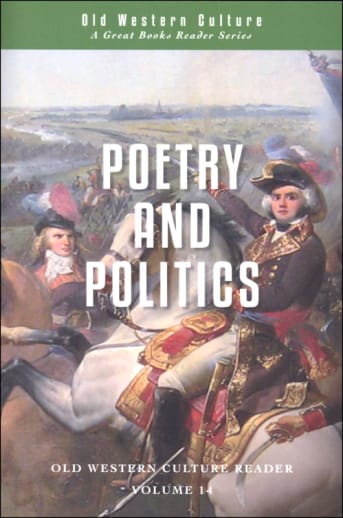Poetry and Politics, Old Western Culture Reader Vol. 14, is a selection of poems and political works from the early modern period. This unique and particular selection of texts accompanies the Old Western Culture unit, Poetry and Politics. Based on the Great Books of western civilization, Old Western Culture guides students through the literature, history, theology, and philosophy of the West from a Christian perspective.
Table of Contents
- Alexander Pope Essay on Criticism, The Iliad (exerpt), and Ode on Solitude, Essay on Man
- C. S. Lewis, De Descriptione Temporum
- Edmund Burke, Reflections on the Revolution in France, and Selected Letters and Speeches
- Samuel Taylor Coleridge, Selected Poems
- William Wordsworth, Intimations of Immortality
- Lord Byron, Selected Poems
- John Keats, On First Looking into Chapman's Homer
- Percy Shelley, Ode to the West Wind
- Alexis de Toqueville, Democracy in America (selections)
- Edgar Allan Poe, Selected Poems
- Alfred, Lord Tennyson, Selected Poems
- Roberts Browning, Selected Poems
- Matthew Arnold, Dover Beach
- Christina Rosetti, Selected Poems
- Gerard Manley Hopkins, Selected Poems

